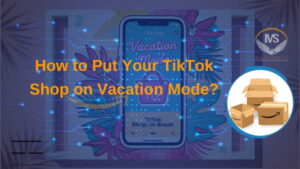Discover practical tips and strategies to land a web developer job without prior experience. Learn essential skills, build a strong portfolio, and explore effective job search techniques to kickstart your web development career today.
Introduction
Landing a web developer job without any prior experience might seem daunting, but it’s entirely achievable with the right approach. In the ever-evolving tech industry, skills and knowledge often outweigh traditional credentials. By focusing on acquiring essential skills, building a compelling portfolio, and strategically navigating the job market, you can position yourself as a strong candidate. This guide will walk you through practical steps and valuable tips to help you secure your first web developer role, even if you’re just starting out.
How To Get A Web Developer Job Without Experience?
Breaking into the web development field without any prior experience can be challenging but certainly not impossible. By focusing on skill development, creating a standout portfolio, and strategically approaching your job search, you can increase your chances of landing your first web developer job. Here’s a step-by-step guide to help you get started:
1. Learn the Fundamentals
Start with the basics of web development. Familiarize yourself with HTML, CSS, and JavaScript, as these are the core technologies used in web development. There are numerous free and paid online resources, including:
- FreeCodeCamp
- Codecademy
- Mozilla Developer Network (MDN)
2. Choose a Specialization
Web development is a broad field. Decide whether you want to focus on front-end development, back-end development, or full-stack development. This decision will help you streamline your learning path and build relevant skills.
3. Build a Strong Portfolio
A portfolio is crucial for showcasing your skills to potential employers. Start by working on small projects to demonstrate your abilities. You can create:
- Personal website: Showcase your projects and skills.
- Clone popular websites: Recreate the front end of popular websites to show your understanding of layout and design.
- Open-source contributions: Participate in open-source projects to gain experience and visibility.
4. Gain Practical Experience
Look for opportunities to apply your skills in real-world scenarios. Some options include:
- Freelancing: Take on small freelance projects on platforms like Upwork or Fiverr.
- Internships: Apply for internships, even if they are unpaid, to gain experience.
- Volunteer work: Offer your web development skills to non-profits or small businesses in your community.
5. Network with Industry Professionals
Networking can open doors to job opportunities. Attend industry events, join online forums,and connect with professionals in the web development community. Some effective networking strategies include:
- Join Online Communities: Participate in forums like Stack Overflow, Reddit’s web development community, or specialized groups on LinkedIn and Facebook.
- Attend Meetups and Conferences: Look for local tech meetups or larger web development conferences where you can meet and learn from industry professionals.
- Engage on Social Media: Follow and interact with web developers on Twitter, LinkedIn, and other platforms to stay updated on industry trends and job opportunities.
6. Tailor Your Resume and Cover Letter
Your resume and cover letter are often the first impressions potential employers will have of you. Make sure they stand out by:
- Highlighting Relevant Skills: Focus on the skills and technologies you’ve learned and how they apply to the job you’re applying for.
- Showcasing Your Portfolio: Include links to your portfolio and specific projects that demonstrate your abilities.
- Detailing Your Learning Journey: Mention any courses, certifications, or self-study efforts that show your commitment to becoming a web developer.
7. Apply for Entry-Level Positions
Look for entry-level web development jobs that are open to candidates without extensive experience. Some job titles to consider include:
- Junior Web Developer
- Front-End Developer
- Web Development Intern
- Web Designer
Tailor your applications to each job, emphasizing how your skills and portfolio align with the job requirements.
8. Prepare for Interviews
When you land an interview, preparation is key. Some tips for success include:
- Practice Coding Challenges: Many web developer interviews include coding tests. Use platforms like LeetCode, HackerRank, or CodeSignal to practice.
- Review Common Questions: Familiarize yourself with common web development interview questions and be ready to discuss your projects and problem-solving approach.
- Show Enthusiasm: Demonstrate your passion for web development and your eagerness to learn and grow in the field.
9. Keep Learning and Improving
The tech industry is always evolving, so continuous learning is crucial. Stay updated on the latest web development trends, frameworks, and tools by:
- Taking Advanced Courses: Enroll in courses on platforms like Udemy, Coursera, or Pluralsight to deepen your knowledge.
- Reading Blogs and Books: Follow web development blogs, subscribe to newsletters, and read books by industry experts.
- Experimenting with New Technologies: Try out new libraries, frameworks, and tools in your personal projects to expand your skill set.
10. Stay Persistent and Positive
Landing your first web developer job might take time, so it’s important to stay persistent and maintain a positive attitude. Keep applying, networking, and improving your skills. Every rejection is an opportunity to learn and improve, bringing you one step closer to your goal.
The Power of Internships and Freelancing
In today’s competitive job market, gaining hands-on experience is crucial for career advancement. Internships and freelancing offer valuable opportunities to build skills, expand networks, and enhance your resume. Whether you’re a student, a recent graduate, or someone looking to switch careers, these experiences can provide a significant boost. Here’s why internships and freelancing are powerful tools for professional growth.
Benefits of Internships
Internships are structured programs offered by companies to provide practical work experience to students and early-career professionals. Here are some key benefits:
1. Real-World Experience
Internships allow you to apply classroom knowledge to real-world scenarios. Working on actual projects helps you understand industry practices, tools, and challenges, providing a more comprehensive learning experience than theoretical studies alone.
2. Skill Development
Internships offer a platform to develop and hone both technical and soft skills. You can gain proficiency in industry-specific tools and technologies while also improving communication, teamwork, and problem-solving abilities.
3. Networking Opportunities
Internships provide access to a network of professionals in your field. Building relationships with colleagues, supervisors, and mentors can open doors to future job opportunities and valuable career advice.
4. Resume Enhancement
Having internships on your resume demonstrates to potential employers that you have practical experience and a proactive approach to your career. It can set you apart from other candidates who may only have academic qualifications.
5. Potential for Full-Time Employment
Many companies use internships as a way to identify and recruit future talent. Performing well during your internship can lead to a job offer, providing a smooth transition from education to full-time employment.
Benefits of Freelancing
Freelancing involves offering your services to clients on a project basis. This flexible work arrangement offers several advantages:

1. Flexibility and Independence
Freelancing allows you to choose projects that interest you and set your own schedule. This flexibility can lead to a better work-life balance and the ability to pursue personal interests alongside your professional work.
2. Diverse Experience
Working with various clients exposes you to different industries, projects, and challenges. This diversity can enhance your adaptability and problem-solving skills, making you a more versatile professional.
3. Building a Portfolio
Freelancing enables you to build a diverse portfolio showcasing your work across multiple projects. A strong portfolio is a powerful tool when applying for jobs or attracting new clients, as it demonstrates your capabilities and range of experience.
4. Financial Opportunities
Freelancing can be financially rewarding, especially as you gain experience and build a reputation. You can set your rates and potentially earn more than you would in a traditional entry-level job.
5. Entrepreneurial Skills
Freelancing teaches valuable entrepreneurial skills such as client management, marketing, and financial planning. These skills are beneficial not only for freelancers but also for those considering starting their own business or seeking leadership roles in the future.
Combining Internships and Freelancing
Many professionals find that combining internships and freelancing provides a well-rounded experience. Internships offer structured learning and networking opportunities within a company, while freelancing provides flexibility and diverse project experience. Together, they can significantly enhance your career prospects.
Utilising Bootcamps and Coding Schools
As the demand for skilled tech professionals continues to rise, many individuals are turning to bootcamps and coding schools as effective pathways to enter the tech industry. These programs offer intensive, focused training designed to equip students with the practical skills needed for a successful career in technology. Here’s a look at how bootcamps and coding schools can be utilized to jumpstart or advance your career in tech.
What Are Bootcamps and Coding Schools?
Bootcamps and coding schools are specialized educational programs that focus on teaching programming, software development, and other technical skills in a short, intensive format. Unlike traditional four-year degrees, these programs are typically designed to be completed in a matter of months, making them an attractive option for those looking to quickly gain the skills necessary to enter the tech workforce.
Benefits of Bootcamps and Coding Schools
1. Accelerated Learning
Bootcamps and coding schools are known for their fast-paced, immersive learning environments. These programs condense a vast amount of information into a short period, allowing students to quickly acquire the skills needed to start a career in tech. This accelerated learning model is ideal for those who want to make a career switch or enter the job market rapidly.
2. Practical, Hands-On Training
One of the primary advantages of bootcamps and coding schools is their focus on practical, hands-on training. Students work on real-world projects and coding challenges, which helps them build a portfolio of work that can be showcased to potential employers. This practical experience is invaluable when it comes to demonstrating competency in job interviews.
3. Industry-Relevant Curriculum
Bootcamps and coding schools often design their curriculum in collaboration with industry experts to ensure that the skills being taught are in high demand. This alignment with industry needs means that graduates are equipped with the latest knowledge and techniques, making them more competitive in the job market.
4. Networking Opportunities
These programs provide excellent opportunities to network with peers, instructors, and industry professionals. Many bootcamps and coding schools have partnerships with tech companies, offering students access to job fairs, mentorship programs, and networking events. Building these connections can be crucial for securing employment after graduation.
5. Job Placement Assistance
Many bootcamps and coding schools offer job placement assistance as part of their program. This can include resume reviews, interview preparation, and direct connections to hiring companies. Some programs even have job guarantees, promising tuition refunds if graduates do not secure employment within a certain timeframe.
Choosing the Right Bootcamp or Coding School
With many options available, it’s important to choose a bootcamp or coding school that aligns with your career goals and learning style. Here are some factors to consider:
1. Program Focus
Different bootcamps and coding schools may specialize in various areas of tech, such as web development, data science, cybersecurity, or UX/UI design. Choose a program that matches your career interests.
2. Duration and Format
Consider the length of the program and whether it’s offered in-person, online, or in a hybrid format. Choose a schedule that fits your availability and learning preferences.
3. Reputation and Reviews
Research the reputation of the bootcamp or coding school by reading reviews from former students. Look for programs with high job placement rates and positive feedback on the quality of instruction and support services.
4. Cost and Financing Options
Bootcamps and coding schools can be a significant investment. Consider the cost of the program and explore financing options such as scholarships, payment plans, or income share agreements (ISAs).
Maximizing Your Bootcamp or Coding School Experience
To get the most out of your bootcamp or coding school experience, consider the following tips:
1. Be Prepared to Commit
These programs are intensive and require a significant time and energy commitment. Be prepared to fully immerse yourself in the learning process.
2. Take Advantage of Resources
Utilize all available resources, including instructors, mentors, and career services. Don’t hesitate to ask for help or seek additional guidance when needed.
3. Build Your Portfolio
Work on as many projects as possible to build a robust portfolio. A strong portfolio will be essential when applying for jobs and showcasing your skills to potential employers.
4. Network Actively
Engage with your peers and participate in networking events. Building a strong professional network can provide valuable support and open doors to job opportunities.
5. Keep Learning
The tech industry is constantly evolving, so it’s important to continue learning even after completing your bootcamp or coding school. Stay updated with new technologies and trends to remain competitive in the job market.
Tailoring Your Resume and Cover Letter
In today’s competitive job market, a one-size-fits-all approach to job applications is no longer effective. To stand out, it’s crucial to tailor your resume and cover letter to each specific job you apply for. Customizing these documents demonstrates to potential employers that you are genuinely interested in the position and that you have the relevant skills and experience they are seeking. Here’s a guide on how to tailor your resume and cover letter effectively.
Understanding the Job Description
Before you start tailoring your resume and cover letter, thoroughly read the job description. Pay attention to the required skills, experience, and qualifications. Identify the key phrases and requirements that the employer emphasizes, as these are what you will focus on when customizing your documents.
Tailoring Your Resume
1. Customize Your Objective or Summary
Your resume’s objective or summary statement is the first thing employers see. Tailor this section to highlight how your career goals align with the company’s needs. Mention the specific job title and a brief overview of how your skills and experience make you a strong candidate.
Example: “Results-driven web developer with over three years of experience in front-end development. Seeking to leverage my expertise in HTML, CSS, and JavaScript to contribute to ABC Company’s innovative projects.”
2. Highlight Relevant Experience
Rearrange your work experience to emphasize the roles and responsibilities most relevant to the job you’re applying for. Use bullet points to highlight specific achievements and duties that match the job description.
Example:
- Developed and maintained responsive websites using HTML, CSS, and JavaScript, improving user engagement by 20%.
- Collaborated with cross-functional teams to design and implement new features, ensuring seamless integration with existing systems.
3. Emphasize Key Skills
Create a skills section that includes the technical and soft skills mentioned in the job description. Ensure these skills are prominently displayed and match the employer’s requirements.
Example:
- HTML, CSS, JavaScript, React
- Responsive design, cross-browser compatibility
- Team collaboration, problem-solving
4. Include Relevant Projects
If you have worked on projects that are particularly relevant to the job, include a projects section in your resume. Detail your role, the technologies used, and the outcomes of the project.
Example: E-commerce Website Development
- Role: Lead Front-End Developer
- Technologies: HTML, CSS, JavaScript, React
- Outcome: Successfully launched an e-commerce website with a user-friendly interface, resulting in a 15% increase in sales.
Tailoring Your Cover Letter
1. Personalize the Greeting
Address your cover letter to the hiring manager or recruiter by name. If the name is not listed in the job posting, do some research on the company’s website or LinkedIn. A personalized greeting shows that you’ve made an effort to learn about the company.
Example: “Dear Ms. Johnson,”
2. Start with a Strong Opening
Begin your cover letter with a compelling opening paragraph that grabs the reader’s attention. Mention the specific job title and where you found the job posting.
Example: “I am excited to apply for the Front-End Developer position at ABC Company, as advertised on your company website. With a strong background in web development and a passion for creating engaging user experiences, I am confident in my ability to contribute to your team.”
3. Align Your Experience with the Job Requirements
In the body of your cover letter, draw direct connections between your experience and the job requirements. Use specific examples to illustrate how your background makes you a suitable candidate.
Example: “In my previous role at XYZ Company, I developed and maintained several high-traffic websites, ensuring they were optimized for performance and usability. My expertise in HTML, CSS, and JavaScript, along with my experience in responsive design, aligns well with the requirements outlined in your job description.”
4. Demonstrate Knowledge of the Company
Show that you’ve researched the company by mentioning specific projects, values, or achievements that resonate with you. Explain why you’re interested in working for this particular company.
Example: “I am particularly impressed by ABC Company’s commitment to innovative web solutions and your recent project on sustainable web design. I share your passion for creating impactful digital experiences and am eager to contribute to your continued success.”
5. Conclude with a Call to Action
End your cover letter with a strong closing paragraph that reiterates your interest in the position and encourages further communication.
Example: “I am excited about the opportunity to join ABC Company and contribute to your dynamic team. I look forward to discussing how my skills and experiences align with your needs. Thank you for considering my application.”
FAQ’s
What are coding bootcamps, and should I attend one?
Coding bootcamps are intensive, short-term programs designed to teach web development skills quickly. They can be a good option if you want structured, fast-paced learning and are looking to enter the job market quickly.
How do I network with industry professionals?
You can network by attending industry events, joining online communities and forums, participating in meetups, and connecting with professionals on LinkedIn. Building relationships in the industry can lead to job opportunities and valuable advice.
How should I tailor my resume and cover letter for web developer jobs?
Customize your resume and cover letter for each job application. Highlight relevant skills, projects, and experiences that align with the job requirements. Demonstrate your enthusiasm for the role and your understanding of the company’s needs.
What resources can I use to learn web development skills?
There are many online resources available for learning web development, including FreeCodeCamp, Codecademy, Udemy, Coursera, and the Mozilla Developer Network (MDN). You can also find tutorials and courses on platforms like YouTube and GitHub.
How do I prepare for a web developer job interview?
Prepare by practicing coding challenges on platforms like LeetCode, HackerRank, or CodeSignal. Review common web development interview questions and be ready to discuss your projects and problem-solving approach. Show enthusiasm for the role and your willingness to learn and grow.
Conclusion
Securing a web developer job without prior experience might seem challenging, but it is certainly achievable with determination and the right approach. By focusing on building essential skills, creating a strong portfolio, and leveraging networking opportunities, you can effectively position yourself as a capable candidate. Embrace continuous learning through online courses, coding bootcamps, and personal projects to stay updated with industry trends. Tailor your resume and cover letter for each application to highlight your relevant skills and enthusiasm for the role. Remember, persistence and a proactive mindset are key. With dedication and strategic efforts, you can successfully break into the web development field and embark on a rewarding career.




